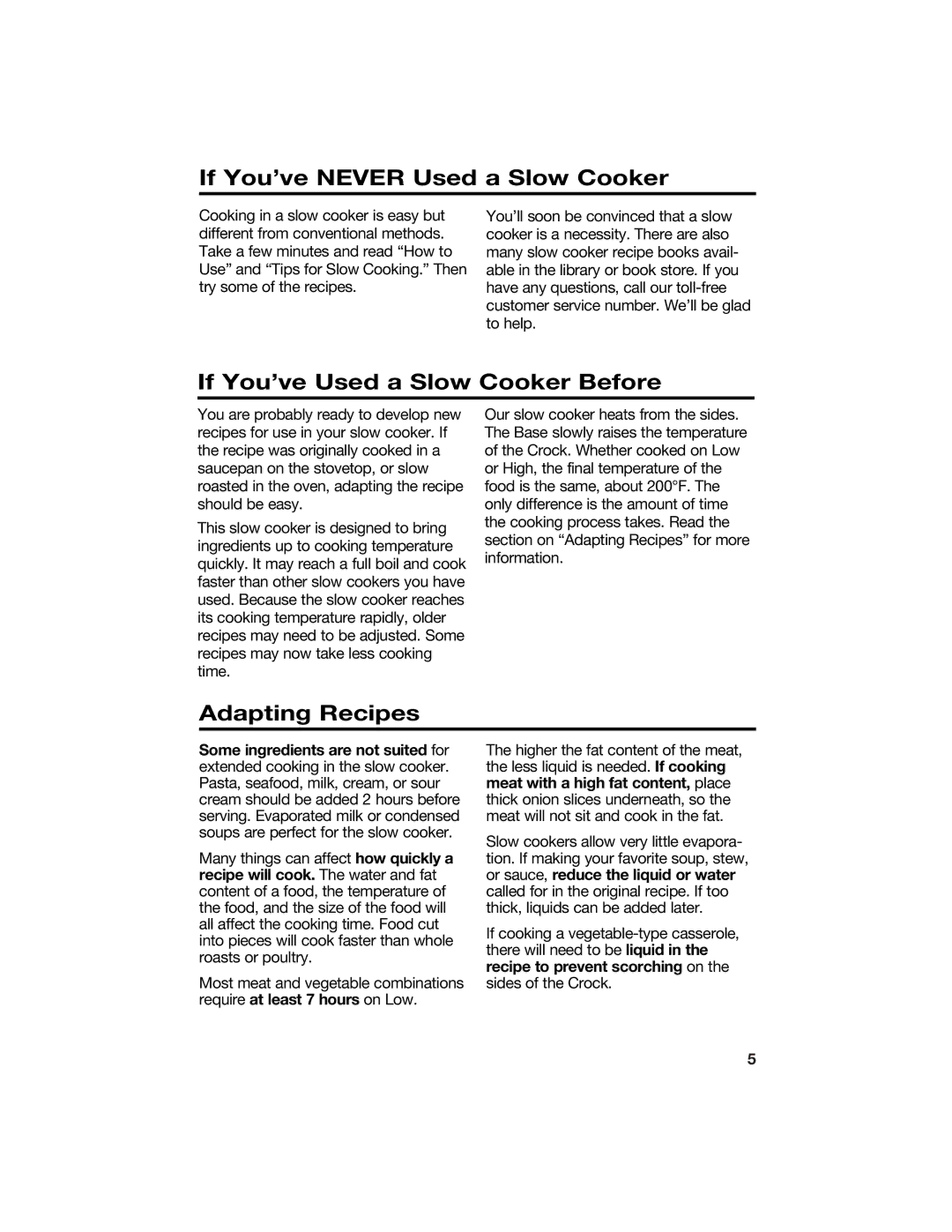
If You’ve NEVER Used a Slow Cooker
Cooking in a slow cooker is easy but different from conventional methods. Take a few minutes and read “How to Use” and “Tips for Slow Cooking.” Then try some of the recipes.
You’ll soon be convinced that a slow cooker is a necessity. There are also many slow cooker recipe books avail- able in the library or book store. If you have any questions, call our
If You’ve Used a Slow Cooker Before
You are probably ready to develop new recipes for use in your slow cooker. If the recipe was originally cooked in a saucepan on the stovetop, or slow roasted in the oven, adapting the recipe should be easy.
This slow cooker is designed to bring ingredients up to cooking temperature quickly. It may reach a full boil and cook faster than other slow cookers you have used. Because the slow cooker reaches its cooking temperature rapidly, older recipes may need to be adjusted. Some recipes may now take less cooking time.
Our slow cooker heats from the sides. The Base slowly raises the temperature of the Crock. Whether cooked on Low or High, the final temperature of the food is the same, about 200°F. The only difference is the amount of time the cooking process takes. Read the section on “Adapting Recipes” for more information.
Adapting Recipes
Some ingredients are not suited for extended cooking in the slow cooker. Pasta, seafood, milk, cream, or sour cream should be added 2 hours before serving. Evaporated milk or condensed soups are perfect for the slow cooker.
Many things can affect how quickly a recipe will cook. The water and fat content of a food, the temperature of the food, and the size of the food will all affect the cooking time. Food cut into pieces will cook faster than whole roasts or poultry.
Most meat and vegetable combinations require at least 7 hours on Low.
The higher the fat content of the meat, the less liquid is needed. If cooking meat with a high fat content, place thick onion slices underneath, so the meat will not sit and cook in the fat.
Slow cookers allow very little evapora- tion. If making your favorite soup, stew, or sauce, reduce the liquid or water called for in the original recipe. If too thick, liquids can be added later.
If cooking a
5
